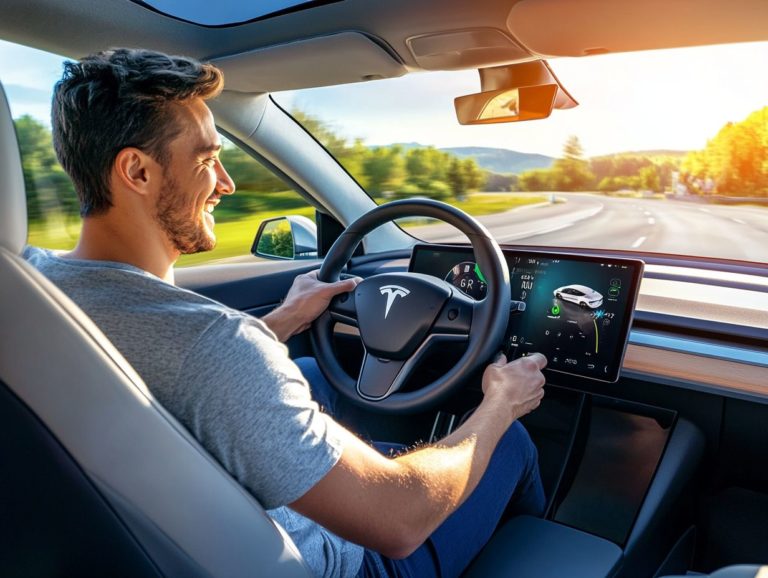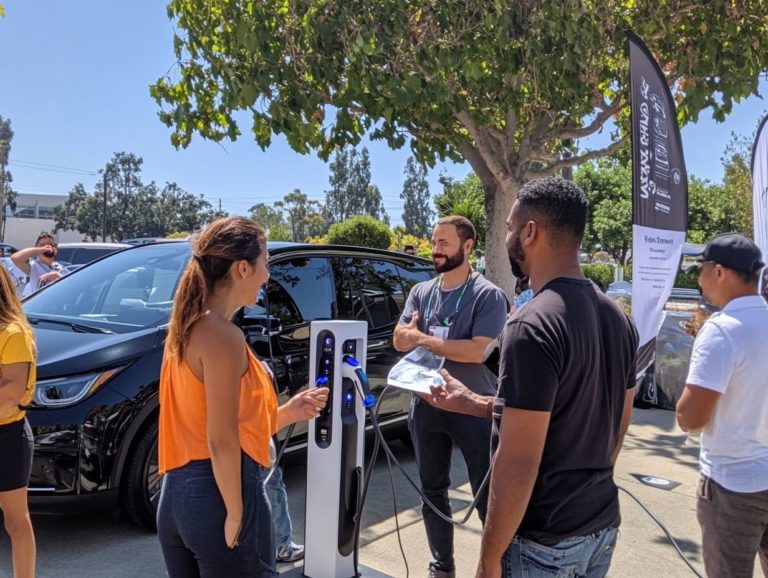electric vehicles vs. gas cars: which to buy?
Choosing between electric vehicles (EVs) and gas cars can be challenging. With rapid technological advancements and growing environmental awareness, it s important to understand the key differences between these options.
This exploration will delve into everything from environmental impact and cost considerations to performance, driving experience, and infrastructure availability. By examining these factors, you ll be well-prepared to make a choice that matches your needs.
Let s jump into the exciting debate on electric versus gas cars right now!
Contents
- Discover the Key Takeaways of EVs vs. Gas Cars!
- Overview of Electric Vehicles and Gas Cars
- Why Environmental Impact Matters
- Compare Costs: EVs vs. Gas Cars
- Performance and Driving Experience
- Availability and Infrastructure
- Factors to Consider When Choosing
- Frequently Asked Questions
- What are the main differences between electric vehicles and gas vehicles?
- Which option is more environmentally friendly?
- What are the benefits of choosing an electric vehicle?
- Are there any drawbacks to choosing an electric vehicle?
- Is it cheaper to drive an electric vehicle or a gas car?
- Which option is better for long-distance travel?
Discover the Key Takeaways of EVs vs. Gas Cars!
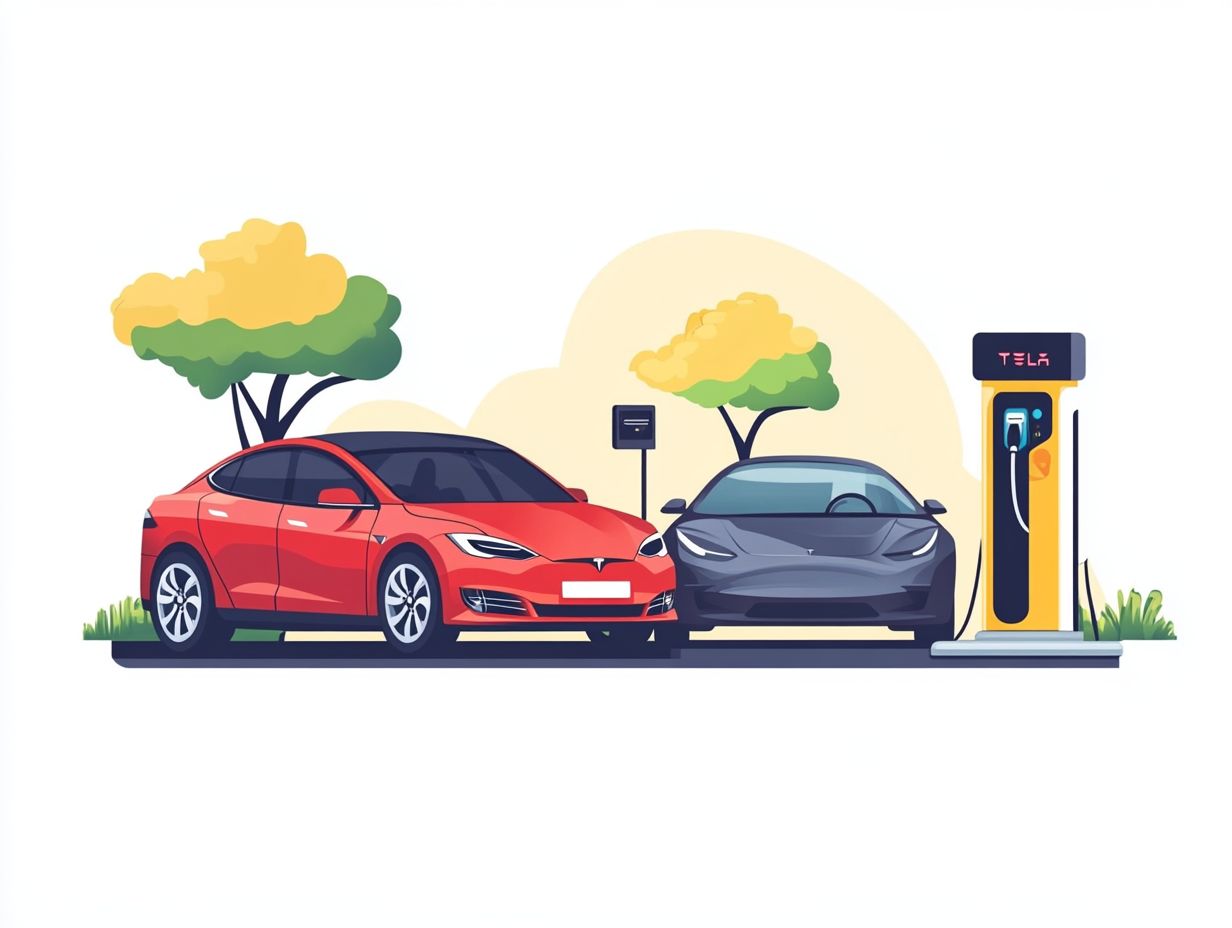
Electric vehicles produce fewer emissions, making them a greener choice.
Though they may cost more upfront, EVs save money long-term with lower fuel and maintenance costs.
Consider acceleration, range, and maintenance in your decision between electric and gas vehicles.
Overview of Electric Vehicles and Gas Cars
The automotive landscape is experiencing a remarkable transformation. Electric vehicles (EVs) are rising as a sustainable alternative to traditional gas-powered cars.
As technology progresses and the market evolves, you are presented with an array of models that promise enhanced performance and efficiency. They also offer substantial long-term savings.
This overview invites you to explore the key differences and similarities between EVs and gas vehicles. We will examine crucial factors such as initial costs, maintenance requirements, and the developing infrastructure supporting these innovative modes of transport.
Basic Differences and Similarities
Electric vehicles (EVs) and gas vehicles stand apart in design and operation. Yet, both possess appealing traits for discerning drivers like you.
Take, for example, their energy sources: EVs draw power from electricity stored in batteries, while gas vehicles depend on gas engines that run on gasoline or diesel. This key difference results in variations in driving range.
Many EVs offer shorter distances per charge compared to gas vehicles, which can typically travel farther before needing a refill.
In terms of maintenance, EVs generally require less frequent servicing due to their simpler mechanics. Gas vehicles often call for regular oil changes and engine inspections.
Despite these distinctions, both types of vehicles can provide remarkable performance, cutting-edge technology, and luxurious interior features. This ensures that your driving experience remains comfortable and enjoyable, no matter which option you choose.
Why Environmental Impact Matters
The environmental impact of vehicles is a crucial consideration as you increasingly seek sustainable transportation options. Electric vehicles (EVs) are frequently praised for their ability to reduce harmful emissions and enhance sustainability, particularly in contrast to traditional gas-powered vehicles.
In this section, you ll find a comprehensive comparison of the emissions produced by both types of vehicles. We emphasize their individual roles in environmental degradation and climate change.
Comparing Emissions and Sustainability
When you compare the emissions and sustainability of electric vehicles (EVs) to gas vehicles, it becomes evident that your choice carries significant implications for the environment. This comparison goes beyond just the emissions produced during operation; it encompasses the entire lifecycle of each vehicle type.
Production processes for gas vehicles often generate a higher carbon footprint due to the extraction and refinement of fossil fuels. Studies reveal that manufacturing a gas engine can emit anywhere from 6 to 9 tons of CO2.
On the other hand, while EVs do produce emissions during their production especially from battery manufacturing their overall lifecycle emissions are generally much lower. According to the U.S. Department of Energy, EVs can achieve up to 60% fewer emissions over their lifetime, particularly as the electricity grid becomes greener.
Furthermore, the end-of-life treatment for both vehicle types also influences their environmental impact. While recycling systems for EV batteries are still in development, they show promise in reducing waste and enhancing sustainability. Your decision can contribute to a cleaner, more sustainable future.
Compare Costs: EVs vs. Gas Cars
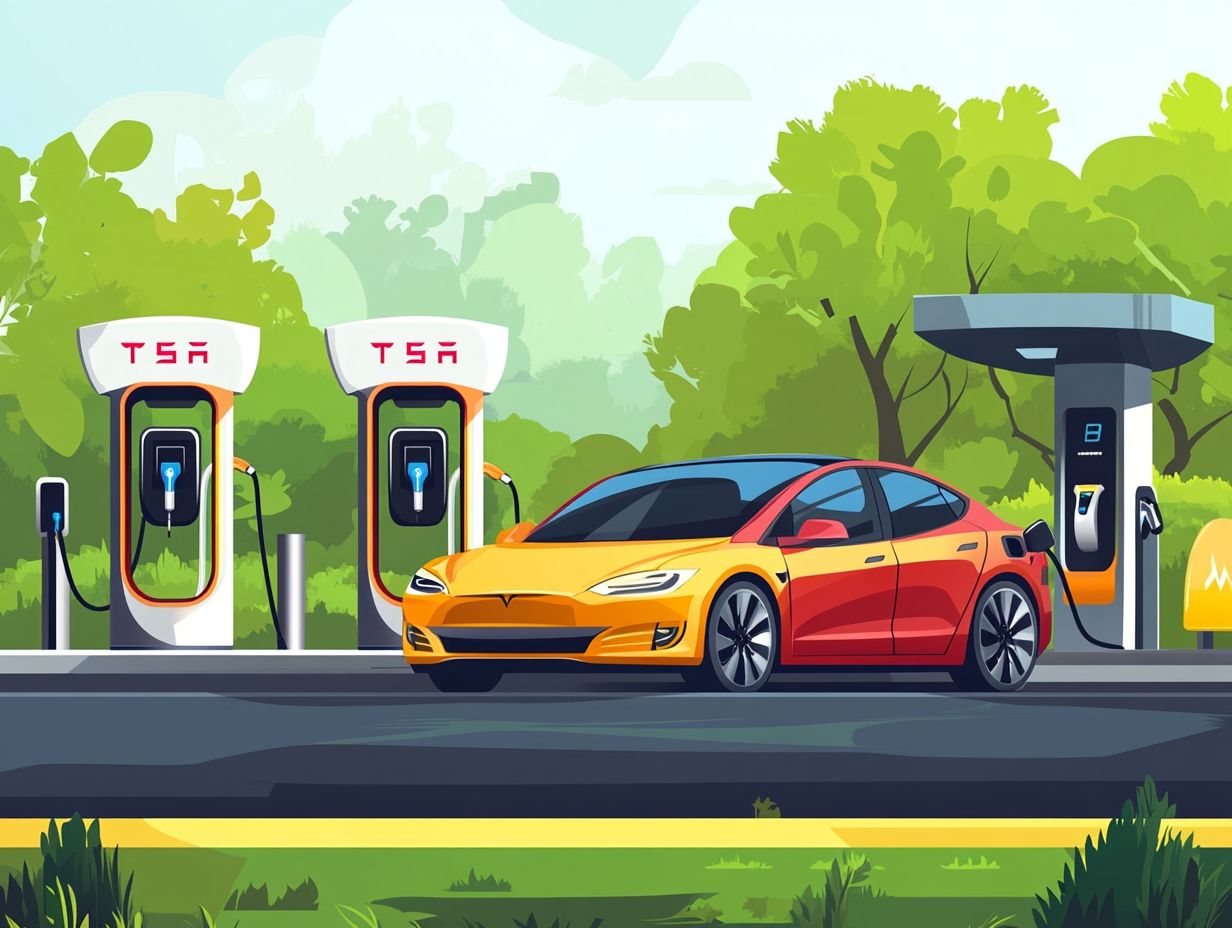
Understanding the cost comparison between electric vehicles (EVs) and gas cars is crucial for making well-informed purchasing decisions.
EVs typically have higher upfront costs, but the potential for long-term savings can make them a more economically sound choice over time.
This section delves into both initial and long-term expenses associated with ownership, maintenance, charging, and fuel, using insights from leading market analyses to guide your understanding.
Initial and Long-term Expenses
Initial and long-term expenses are essential factors to consider when weighing the financial implications of electric vehicles (EVs) against gas cars.
As a potential buyer, it s important to break down the upfront costs involved in purchasing an EV. This includes the purchase price, any available incentives, and various financing options.
While the initial investment might appear intimidating, many states offer rebates and tax credits that can ease some of that upfront burden.
In contrast, the long-term expenses of owning an electric vehicle can be quite favorable. You can enjoy fuel savings from lower electricity rates and reduced maintenance costs due to fewer moving parts.
These factors can lead to substantial savings over time. By examining both your immediate financial commitments and the lasting fiscal advantages, you ll gain a well-rounded understanding of the total cost of ownership.
Performance and Driving Experience
When you re weighing your options between electric vehicles (EVs) and gas cars, performance and driving experience are crucial considerations.
Thanks to technological advancements, today s EVs deliver remarkable acceleration and range, often standing shoulder to shoulder with their gas-powered rivals.
In this section, you ll explore the different facets of performance, including acceleration and maintenance requirements for both types of vehicles.
Acceleration, Range, and Maintenance
Acceleration, range, and maintenance are pivotal factors that set electric vehicles (EVs) apart from gas vehicles in terms of performance.
In terms of acceleration, EVs deliver instant torque, which means they can accelerate quickly, providing you with a truly exhilarating driving experience.
This immediate power leads to impressive 0 to 60 mph times, allowing you to outpace many gasoline models effortlessly.
Range is also a critical consideration. Gas vehicles can be refueled quickly at nearly any gas station, while EVs may require strategic planning for longer journeys.
On the maintenance front, electric vehicles tend to need less frequent repairs due to their simpler mechanics, though regular checks on the battery and charging systems are essential.
Gas vehicles, on the other hand, often demand more routine upkeep, including oil changes and exhaust system evaluations.
Availability and Infrastructure
The availability and infrastructure surrounding electric vehicles (EVs) are crucial to your experience and adoption of this innovative technology.
As the number of charging stations rises, you now benefit from the convenience and accessibility that once felt out of reach.
In this section, you ll discover the current landscape of charging infrastructure and see how it stacks up against the fueling options available for gas vehicles.
Think about what matters most to you when choosing your next car!
Charging Stations and Accessibility
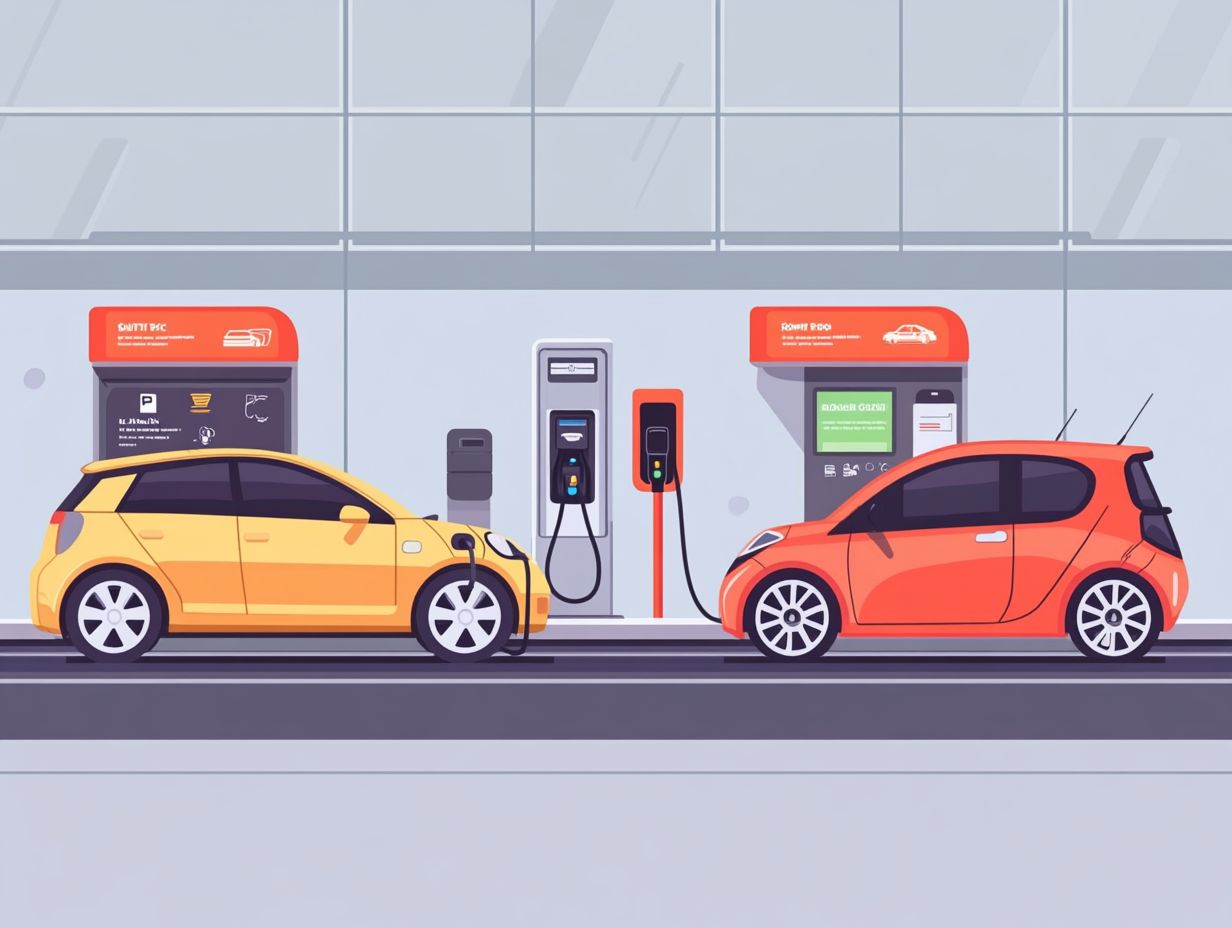
Charging stations and accessibility are vital elements of the infrastructure that support electric vehicles (EVs) and significantly influence their market adoption.
The variety of charging options available plays a pivotal role in shaping consumer decisions and the overall dynamics of the EV market. Level 2 chargers charge your car in a few hours, while Level 3 chargers can do it in about 30 minutes.
Level 2 chargers, often found in residential areas and public parking lots, provide the convenience and efficiency needed for daily commutes.
On the other hand, Level 3 chargers, celebrated for their rapid charging capabilities, are strategically located along highways and in urban centers to cater to longer journeys.
This thoughtful geographical distribution of charging infrastructure not only addresses diverse needs but also profoundly impacts purchasing behaviors, encouraging a shift towards more sustainable transportation options.
As more regions adopt these advanced charging technologies, the demand for electric vehicles is poised to surge, heralding a new era of eco-friendly driving solutions.
Factors to Consider When Choosing
When weighing the options between electric vehicles (EVs) and gas vehicles, several tailored factors will come into play, fitting your needs.
By understanding your driving habits, you can make a more informed decision. This section delves into essential considerations to help you select the vehicle that perfectly complements your lifestyle.
Personal Needs and Preferences
Personal needs and preferences are crucial when deciding between an electric vehicle (EV) and a gas vehicle. Your individual circumstances significantly shape this decision-making process.
If you have longer commutes, you might lean toward the fuel efficiency and quick refueling capabilities of gas vehicles. Conversely, if you’re navigating urban streets with shorter trips, an EV could align seamlessly with your lifestyle.
Family size also plays an essential role; larger households often require more space and versatility, making SUVs or minivans standout options.
Your lifestyle choices, such as a commitment to sustainability or a passion for tech features, also influence your decision. This ensures that the vehicle you choose meets practical needs while resonating with your personal values and daily routines.
Frequently Asked Questions
What are the main differences between electric vehicles and gas vehicles?
Electric vehicles run solely on electricity, while gas vehicles use gasoline to power their engines. This results in differences in cost, environmental impact, and performance. Electric vehicles have lower operating costs and produce zero emissions, while gas vehicles have higher upfront costs and contribute to air pollution.
Which option is more environmentally friendly?
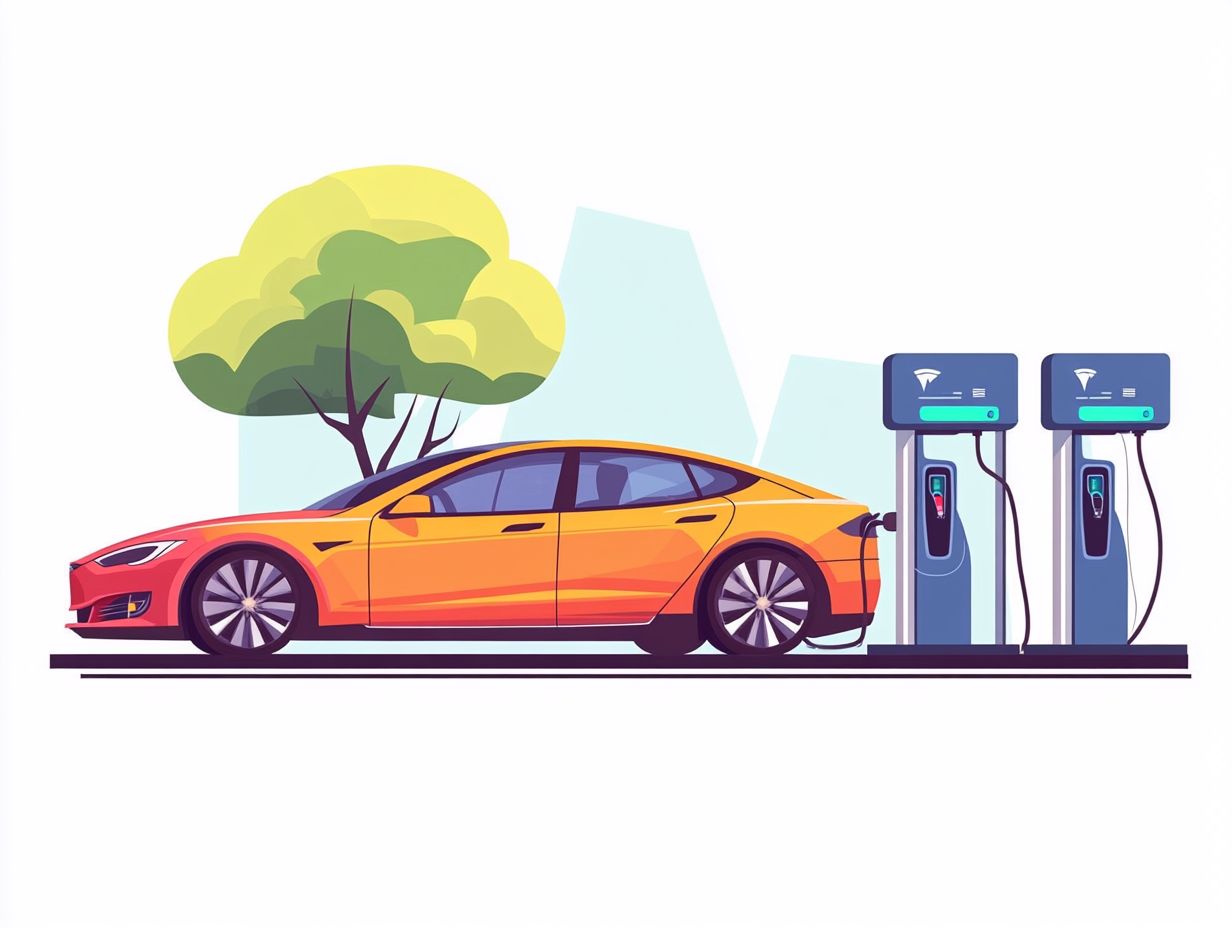
Electric vehicles are considered more environmentally friendly than gas vehicles. They produce zero emissions while driving, reducing air pollution and greenhouse gas emissions. Gas vehicles, on the other hand, emit harmful pollutants such as carbon dioxide, nitrogen oxides, and particulate matter.
What are the benefits of choosing an electric vehicle?
Choosing an electric vehicle comes with several benefits, including lower operating costs, reduced environmental impact, and smoother, quieter performance. Electric vehicles also require less maintenance, as they have fewer moving parts compared to gas vehicles. Additionally, many countries and cities offer incentives and tax breaks for purchasing an electric vehicle.
Are there any drawbacks to choosing an electric vehicle?
One potential drawback is the upfront cost; electric vehicles can have a higher purchase price compared to gas vehicles. Additionally, charging infrastructure may not be as readily available as gas stations, making long-distance travel more challenging. However, with the increasing popularity of electric vehicles, this is rapidly changing.
Ready to make a change? Explore our range of electric vehicles today!
Is it cheaper to drive an electric vehicle or a gas car?
Wondering if an electric vehicle can save you money? Electric vehicles usually have lower running costs than gas cars.
The cost of electricity is often less than gasoline, leading to savings over time. Plus, electric vehicles need less maintenance because they have fewer parts that can wear out.
However, keep in mind that the upfront cost of buying an electric vehicle might be higher.
Which option is better for long-distance travel?
Gas cars are generally more suitable for long trips. This is mainly because there are more gas stations than charging stations.
However, the popularity of electric vehicles is changing that. More charging stations are being built, making long-distance travel easier.
Plus, electric vehicles with longer ranges are becoming more common. Ready to hit the road with an electric vehicle?




